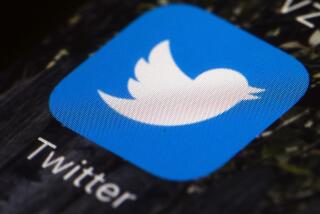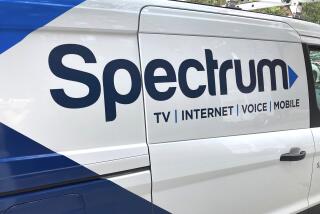Comcast Limits Broadband Usage
- Share via
By all accounts, George Nussbaum demands a lot from his Internet connection. He streams video and transfers large files from his office. His family downloads movie trailers, and his stepson listens to and buys music online.
Nussbaum subscribed to his cable TV provider’s high-speed Internet service, which, he thought, was built for such high-bandwidth activities. Then, in November, he got a letter from the provider, Comcast Corp., ordering him to dial down his usage or face service termination.
Until last summer, the service was advertised as “unlimited.”
But Comcast, citing a fuzzy “acceptable use” policy, is now cracking down on the heaviest users on the premise that their consumption could degrade neighbors’ service.
Some broadband providers are beginning to offer different tiers of service, charging high-volume users more. Comcast, critics say, is trying to impose limits without telling consumers that the service is limited.
Nussbaum, who at first had no idea how many gigabytes he consumed, was willing to cut back. He called to find out by how much, but customer service had no answer. Then he asked how much he used. Again, Comcast wouldn’t provide a number.
Last month, Nussbaum got a second letter threatening suspension or termination, so he decided to sign up for a digital subscriber line offered by his phone company.
“How am I supposed to know what my limits are?” said Nussbaum, an engineer from Plaistow, N.H.
Nussbaum isn’t the only unhappy customer. Randy Jackson of Colonia, N.J., received form letters with blank date fields. Tallon Nishihata of suburban Tacoma, Wash., said his letters referred him to a pricey business-grade service that wasn’t available in his area.
Most broadband companies have vague policies, but Comcast’s appears to be the most aggressively enforced. It provides no tools for monitoring bandwidth, and it does not give any specific guidance.
Comcast says the few people who receive the warning letters typically consume 100 times more than the average user.
But the cable firm refused to reveal the average consumption among its 4.8 million high-speed subscribers.






